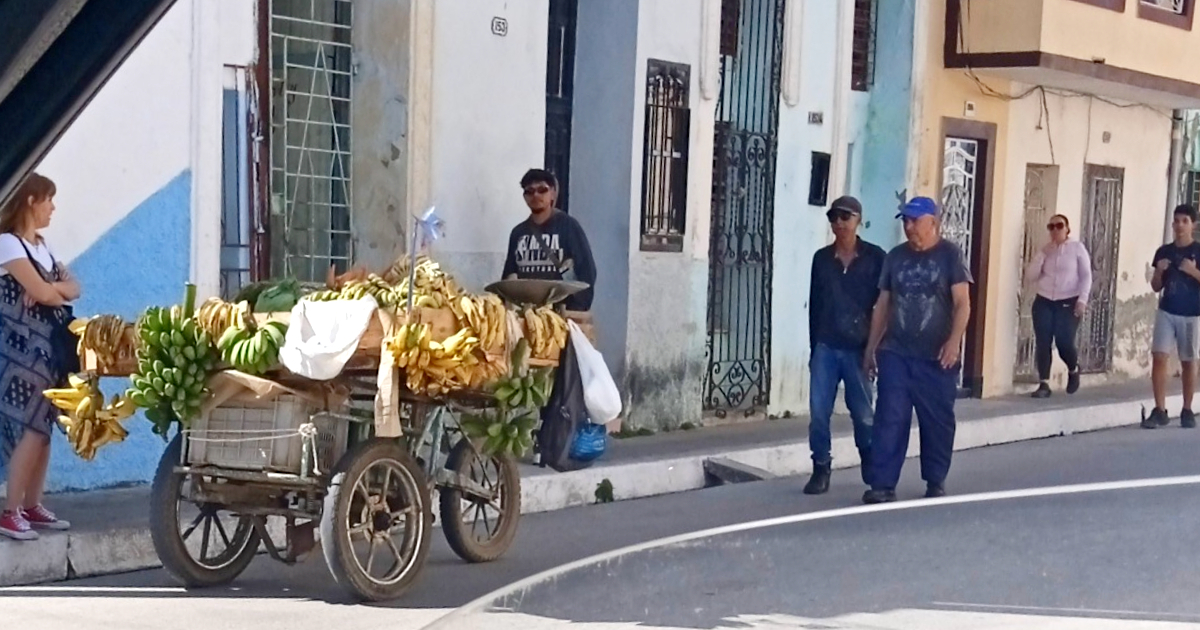Cuban journalist Jesús Álvarez López, a radio reporter with 40 years of service in state-run media such as the Villaclareña network CMHW, erupted this Tuesday over the relentless rise in prices affecting products in Cuba, especially those from the countryside. In a plea for state control of prices and in defense of "the humble," the radio reporter took to social media to express the discontent felt by the vast majority of the population, whose salaries and pensions no longer suffice to meet even their most basic needs for food, transportation, or personal hygiene.
"What can a retiree buy today with 1,528 pesos, when even cassava, sweet potatoes, pumpkin, and flour have been stripped of their historical modesty?" Álvarez López questioned in an extensive reflection on prices and wages in Cuba. His thoughts emerged amid the protests of a farmer who found his words on the radio criticizing the high prices of agricultural products unfair. This encapsulated the concerns of the population over inflation and the loss of purchasing power among Cuban workers and pensioners.
State-Controlled Prices and Economic Discontent
"The current disorder encourages prices to keep rising," noted the journalist, who described the prices of other non-agricultural foods, such as bread, pizza, and soft drinks, as "shameful." In a veiled critique of the decentralization policies promoted by the Cuban regime, which aims to shift its responsibilities for the population's well-being to local entities, Álvarez López criticized the initiative of some municipal administrative councils to raise product prices. According to him, this causes a contagion effect among other producers and authorities.
"These prices are not more justified when approved unanimously but when they are thoroughly analyzed at the root with real expenses and not just listening to those interested in raising them, never to the low-income consumers who no longer know what to do to feed themselves," he stated. He also criticized local governments that "cap prices as a routine act because no one knows which were approved, they are not adequately publicized, and no one strives to enforce them."
"People perceive that there is too much talk and little action when they feel squeezed every day and often can't even find a scale to check the weight of the purchased product or an inspector to relay a complaint. But respect for consumer rights cannot just be a will; it must be an obligation because it is enshrined in our legislation," the journalist asserted.
Questioning Government Policies and Leadership
Amid the unstoppable increase in prices, Álvarez López ended up questioning the discourse and ability of Miguel Díaz-Canel's government to curb inflation and increase food production. "The harsh reality is that prices jump every day, and no one puts a stop to it. The call to produce more is false when not even oil is available to till the land on time, and the leniency prevents enforcing price caps, which are set for the producer and not for the speculator," the state journalist remarked.
Like ordinary Cubans, many state journalists are beginning to break the discipline imposed by the Communist Party of Cuba, the only legal party to which the regime's state media are subordinated. The "correction of distortions" announced by Díaz-Canel's government remains in the propagandistic atmosphere of the regime without translating into coherent and efficient economic policy.
Neither has the call for a hardline approach by Prime Minister Manuel Marrero Cruz and his crusade against "leniency" proven to be a policy born of economic analysis, nor equipped with appropriate tools to end the corruption that prevails from the Palace to the last bastion of the so-called "revolutionary power."
"Loyalty to our historical legacy means defending the humble, and the eternal coexistence with these problems that the oppressed people have not stopped denouncing for a single day equates indifference with complicity. It is time to act with intelligence and energy," concluded the journalist, who had previously raised alarms with his criticisms of the scarcity of bread and fuel.
Understanding the Economic Challenges in Cuba
In this section, we address some common questions and provide answers regarding the current economic challenges in Cuba, focusing on inflation, government policies, and their impact on ordinary citizens.
What are the main causes of inflation in Cuba?
The main causes of inflation in Cuba include the government's economic policies, supply chain issues, and the centralization of price controls that fail to reflect real market conditions.
How are local governments contributing to the rise in prices?
Local governments contribute to rising prices by approving price hikes and failing to enforce price caps, which leads to a domino effect among producers and authorities.
What is the public perception of government actions to curb inflation?
The public perceives that the government talks a lot but takes little action, leading to a sense of being squeezed financially every day without adequate consumer protections.
What criticisms has Jesús Álvarez López made about the government's handling of the economy?
Jesús Álvarez López has criticized the government's inability to curb inflation, the inefficiency of decentralization policies, and the failure to increase food production, highlighting the disconnect between government rhetoric and reality.
